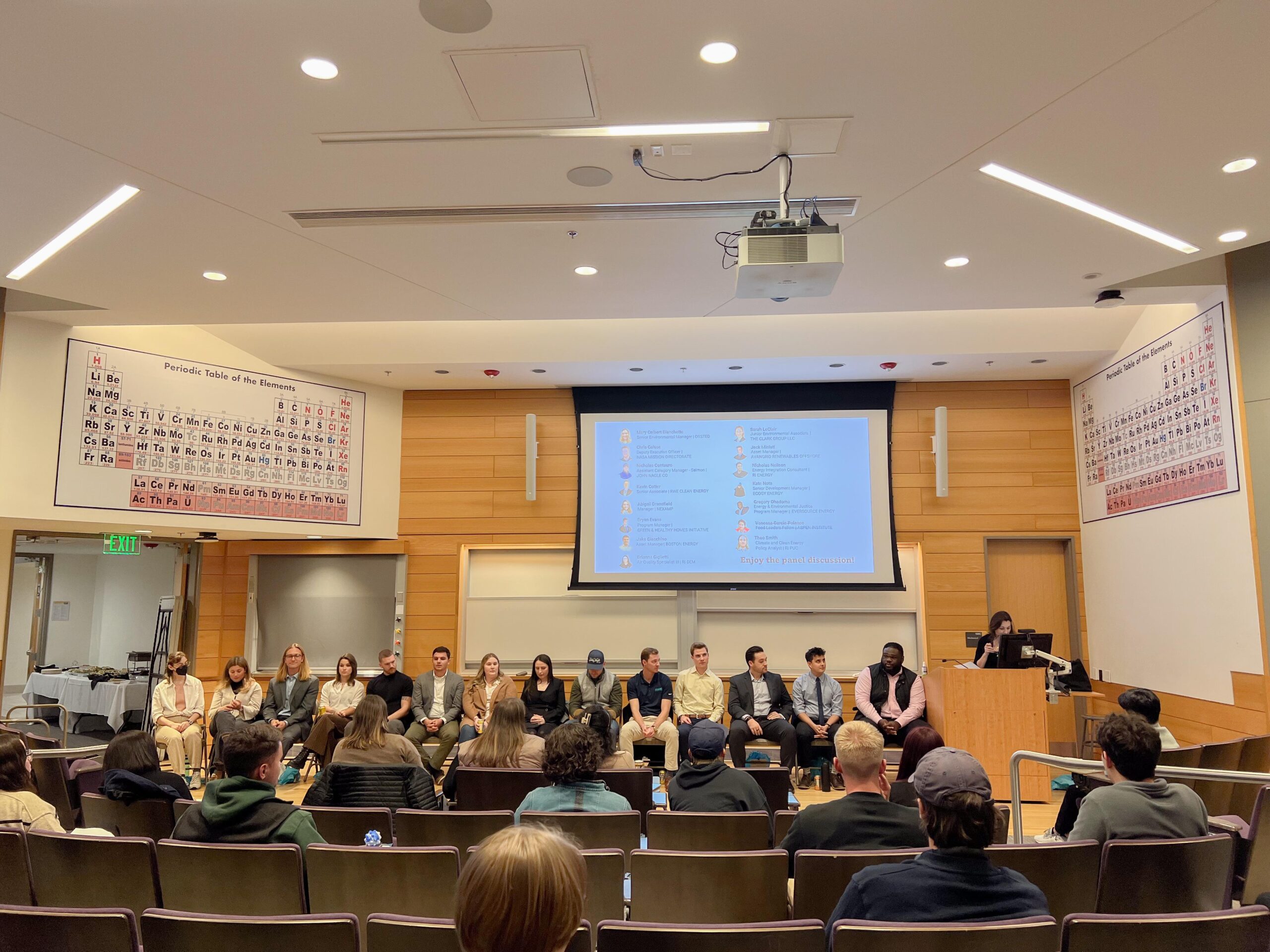Alumni were welcomed back to the University of Rhode Island’s campus on Thursday, Oct. 17 to provide career advice to students in a panel hosted by the department of environmental and natural resource economics.
Fourteen URI alumni were on the ENRE panel, hosted by professor and undergraduate program director Simona Trandafir in the Center for Chemical and Forensic Sciences. The panelists answered questions from Trandafir, along with questions from the URI students in attendance.
The crowd consisted of around 35 people, mostly undergraduate students and professors in the ENRE department.
The panelists opened by discussing the circumstances of landing the job they have. They gave insight on how long after graduation they got a job and some tools they used to find an employer.
Most of the panelists found a job within a few months after graduation, with a few finding jobs before graduating and some not finding one up until a year after.
“I do think it’s important when you’re first looking for jobs to really weigh your options and not just automatically accept like the first thing that’s given to you,” Chris Caisse, deputy executive officer at NASA, said.
Many panelists said they used sites such as LinkedIn, Indeed, government websites and connections they had in order to help them find a job.
“Obviously, I think LinkedIn and those types of job sites are a great way,” Bryan Evans, a program manager at Green and Healthy Homes Initiative, said. “That’s how I got my first two jobs – I contacted them through LinkedIn and they followed up with me.”
The panelists were then asked to speak about the most difficult things they encountered after college and the biggest lessons they had to learn.
“You’re going to have to make sacrifices to get to where you want to be,” Nicholas Centauro, assistant category manager at John Nagle Company, said. “If you share the same values and mission with the company you’re at, and you’re hardworking and persistent and have passion… you’ll get there, you just gotta make sacrifices.”
Many panelists spoke on the challenges of adjusting to the differences between college life and the workforce, and the things necessary to leave behind in order to succeed.
“When you leave, you’re on your own until you get your job,” said Kevin Cotter, senior associate at RWE Clean Energy. “You should want to go to work every day and be passionate about what you’re doing.”
Trandafir asked the panelists to speak on courses or experiences that helped them the most. Multiple professors in the ENRE department, including Trandafir and Corey Lang, were credited for the courses they ran.
“What I wish I had done differently is chosen elective courses more deliberately,” said Jake Giacchino, asset manager at Boston Energy. “My first two years, I just chose whatever everybody said was the easiest, and just barely paid attention just to get the passing grade, but there’s actually a lot of really interesting elective courses you can take.”
Some of the courses mentioned multiple times were finance courses and ENRE-specific business courses. Study abroad opportunities were also credited by Kate Nota, a senior development manager at Ecogy Energy.
“I was very privileged to be able to study abroad in school,” Nota said. “So I would say, especially for local Rhode Islanders who haven’t left yet, I would intentionally think about that if you still have an opportunity to do so.”
An audience member asked the panel how much their grade point average mattered in order to get a job.
“Zero,” said the panelists.
More information about the department of environmental and natural resource economics can be found on their website .





